
The first hints of Michael Zheng’s competitive drive glimmered when he was nine or so. A fresh face in the U.S. Tennis Association’s junior development program, he was for the first time facing opponents who played at a high level — and facing them at the Billie Jean King National Tennis Center in Flushing, New York.
It was the home of the U.S. Open after all, where the aura of legends fills all 46 acres like oxygen. It’s where Arthur Ashe became the first Black man to win a Grand Slam. Where Steffi Graf capped an astonishing run of Olympic and Grand Slam wins, and where Billie Jean King herself parlayed her 1972 win into a platform for equal prize money for women.
Even if Michael and other kids in the program were too young to fully appreciate such mythic moments, they aspired for big things. And Michael found out quick that it wouldn’t be easy. The whole scene, combined with the clarity that came with playing highly ranked opponents, gave him new bearings to read and understand the tennis topography and his place on it.
Let’s just say he was looking up.
At that point, he’d been working with a coach who’d spotted him a couple years earlier as he hit balls with his dad at a club in their hometown of Montclair, New Jersey. He’d played against other kids, but none with the skill or experience he faced in the junior development program.
“My first couple days there, I was losing like 6–0 to some of those players,” he says, almost with the detachment of an observer rather than a participant. “I didn’t like to lose to any of the players there. A lot of them at the time were better than me, more experienced than me, but I tried to find ways to win.”
He credits the program’s high-level coaching but also the work ethic and intelligence-gathering ethos that his dad instilled. Learn what you can, control what you can, do what you can.
What can you control at nine years old? The most important, enduring stuff: Your understanding of the game, your opponents and on-the-court excellence.
“I’d watch film of some of the pros and see what they were doing and try to emulate them,” he says.
He didn’t stop at watching film of pros, though. He’d scrutinize the performance of kids he played against, too. If he wanted to win some sets, it was his job to collect the intel and devise his game plan.
“The way I grew up, my dad would have me think of my opponents’ weaknesses and think of different ways to attack them. I’d also write down in a journal what each player did well — their strengths and weaknesses — and how could I find ways to beat them. It helps if you’re the one seeing the film and coming up with it yourself instead of being force-fed it.”
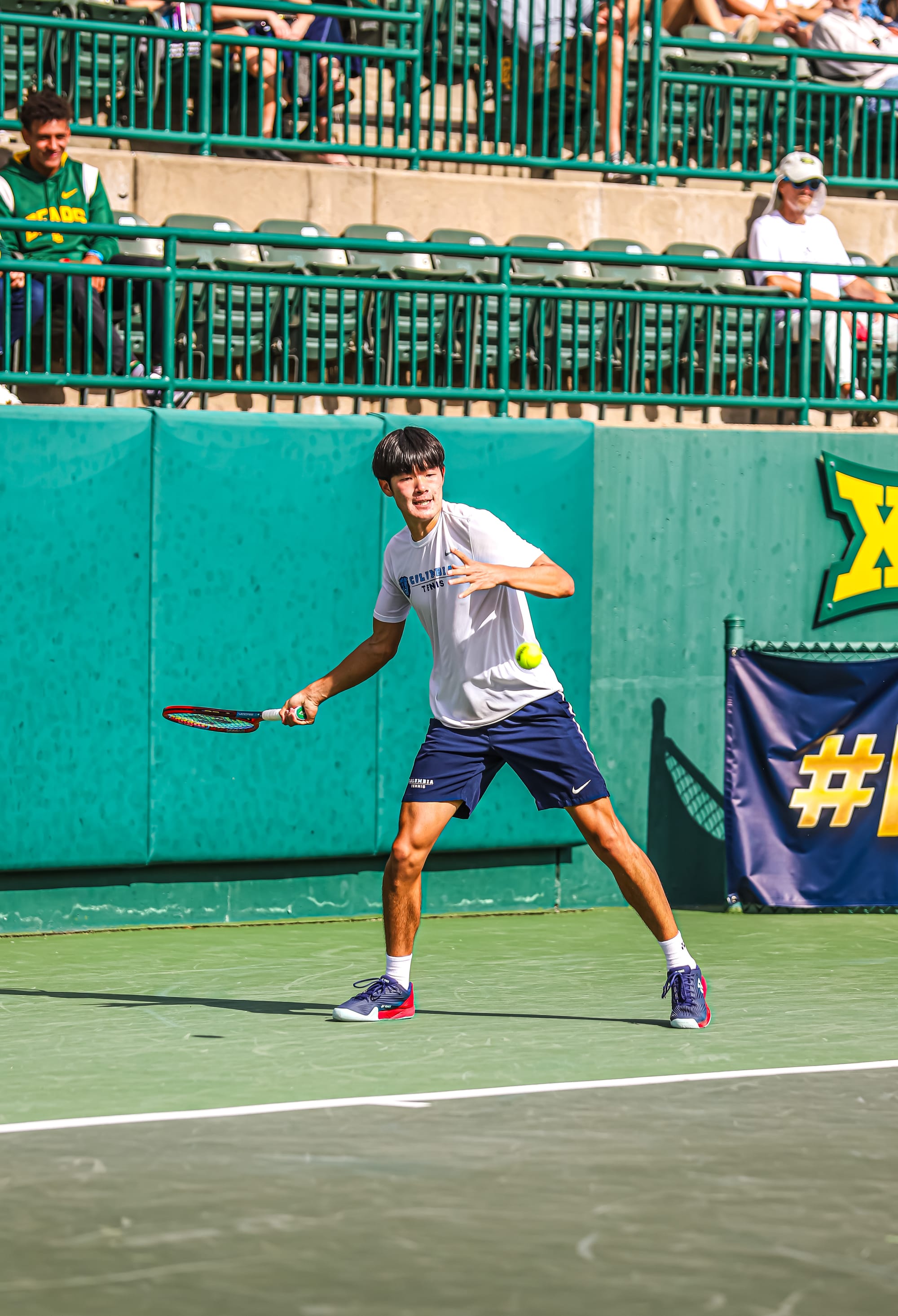
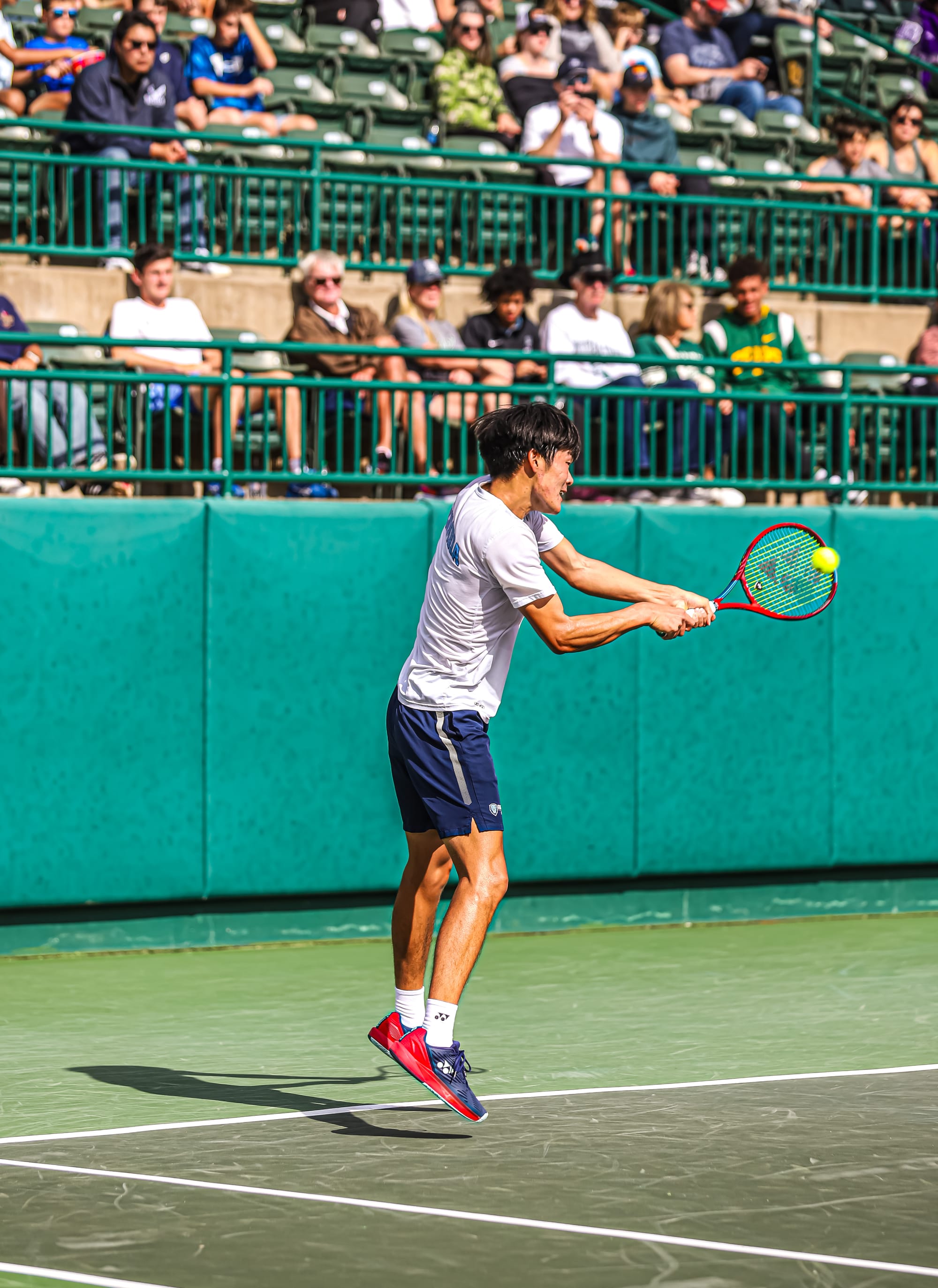
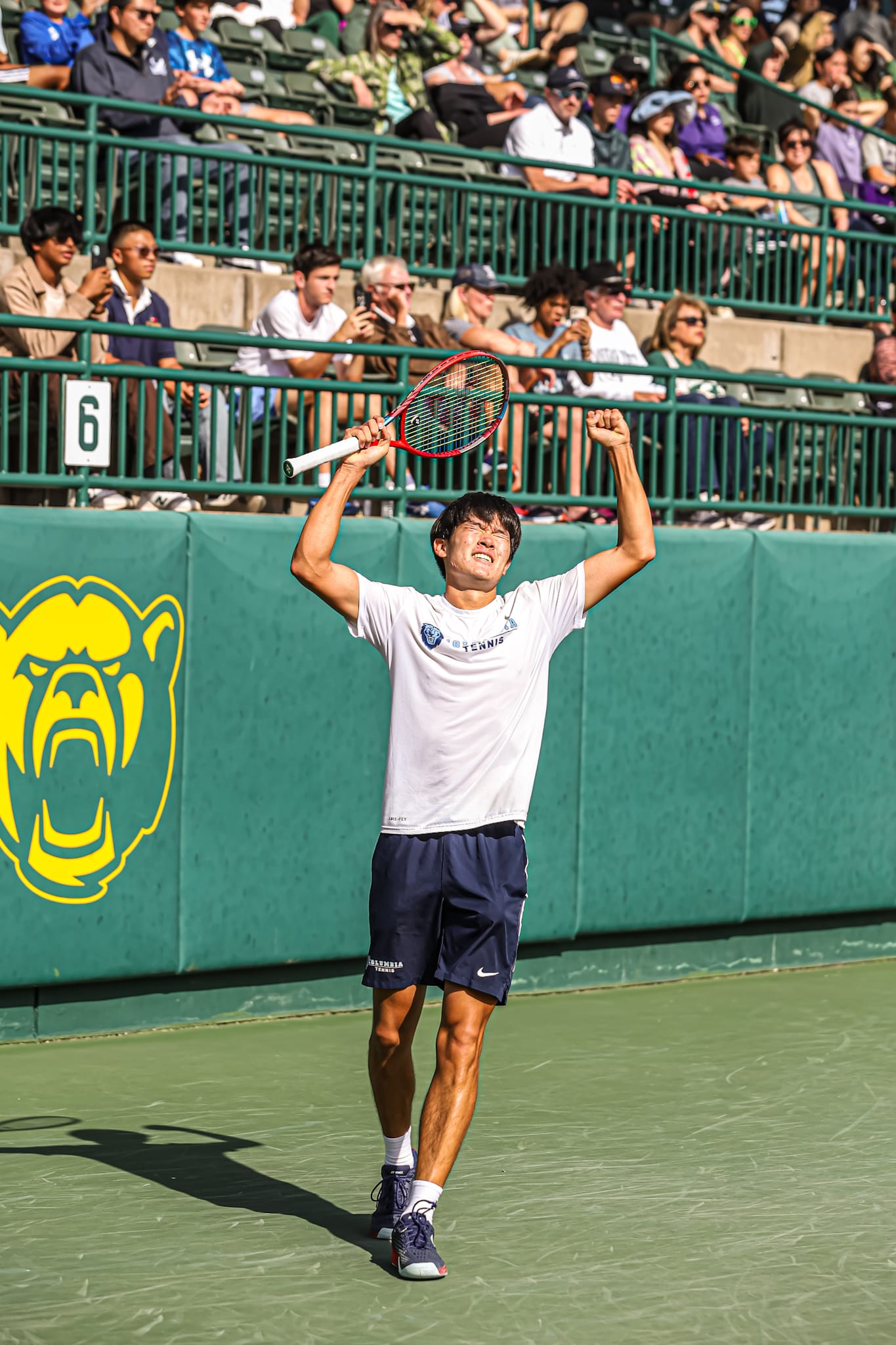
His path to the top of college tennis wasn't linear. In fact, one could argue Zheng learned more from his setbacks than victories. [Courtesy photos]
It wasn’t a chore. His competitive nature gave him plenty of motivation to do everything he could to give himself the best chance to win. He understood the experience gap between him and the other players in the junior development program, and he worked to close it.
Instead, he just created a whole new gap.
“By my second year there, I was the best player,” he says, again casually, in the same way you might say, “Traffic was smooth today” over dinner after work.
Not a humble brag or self-congratulation. Just an objective observation of the earliest contour line he crossed as he climbed to his current perch atop college tennis as the 2024 NCAA men’s singles champion.
A junior at Columbia College, the undergraduate liberal arts school at Columbia University, Michael became part of Ivy league history in November when he defeated Michigan State’s Ozan Baris 6-2, 4-6, 6-2 to win the title.
It was the first time in since 1906 — way back when Teddy Roosevelt was president — that a Columbia player won a men’s singles title (Robert LeRoy, 1904 and 1906), and the first time since 1922 (Yale) that the title went to an Ivy League school.

Michael knew of the historical significance going into the match, but that wasn’t his focus. No, like his nine-year-old self, he was dead set on being the best.
He’d come so close just 29 weeks earlier, when, as an unseeded sophomore he made a surprise run to the 2023–24 NCAA singles final. He lost to Alabama’s Filip Planinsec 6-7(4), 6-3, 6-2, but that experience gave him the self-intel he needed for his junior-year singles tournament in November. (Starting in 2024, the NCAA moved individual competitions to the fall as part of a two-year pilot program.)
Since that loss in May, Michael and his coaches worked on his serve, which he knew would be a big factor in his quest to get back to the final and win. And it worked. After going 10-1 during the regular season, he earned a #2 seed going into the NCAA tournament — there would be no surprise run this time.
He planned to play with a nothing-to-lose, “go-for-my-shots” mindset, and if his opponents played a higher level than him, he could live with it. It didn’t come to that, though. In his recap of each round, you can see the throughline from his young journal-jotting self to his present-day opponent and self analysis.
A taste:
On the round of 32 against Princeton player Fnu “Top” Nidunjianzan: I lost to him my freshman year. I knew he’d have some confidence. He was playing well.
On the round of 16 against Georgia’s Thomas Paulsell: That was a little more tricky. I came out slow I thought. He was playing quite well. I played a more solid second set and got up a break early, hit some clutch serves and moved a little better behind the ball.
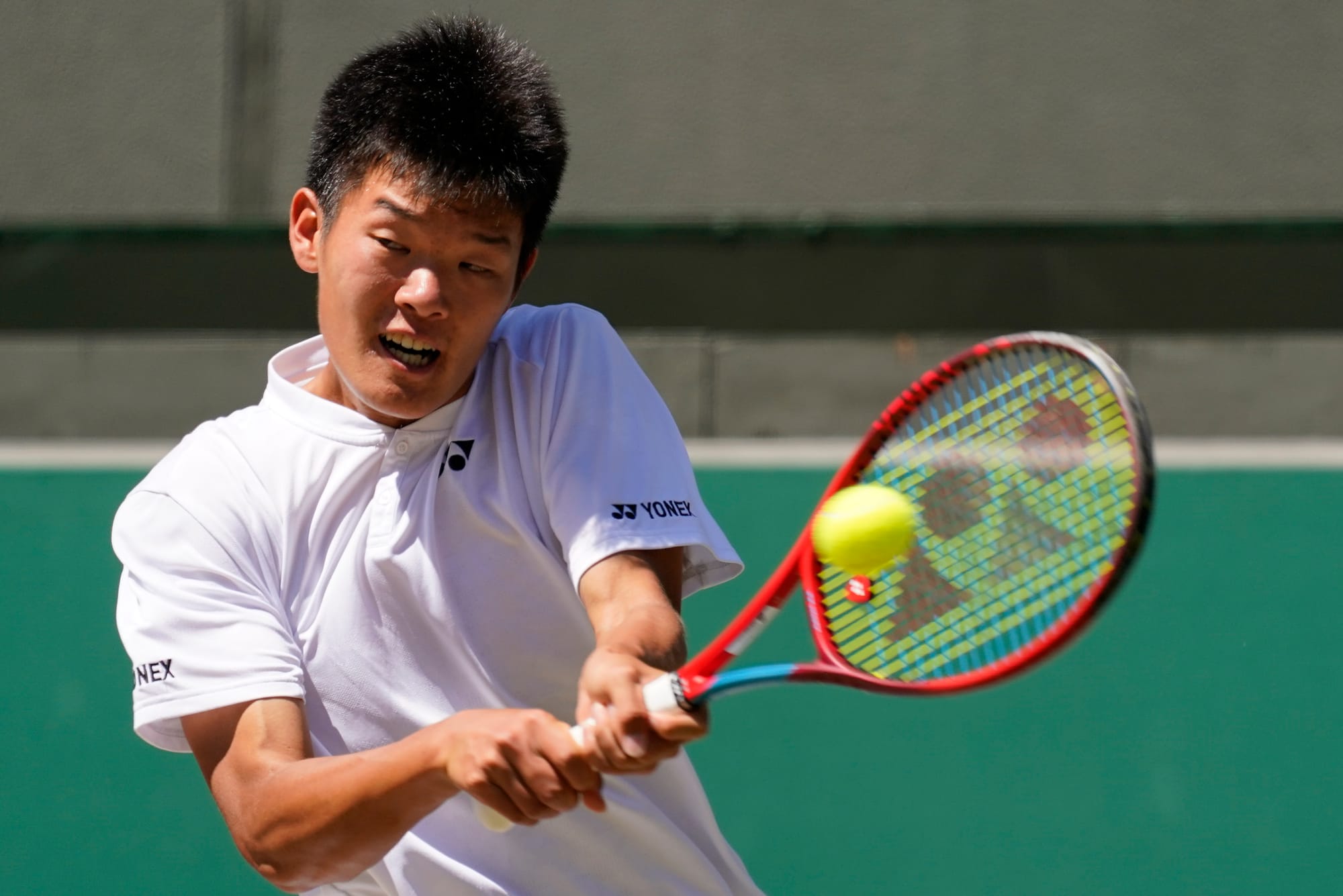
On the quarter final against Lui Maxted of Texas Christian University: My quarter final was the best match I played all tournament. We played a high-level match. It could have gone either way.
Michael’s opponent in the semis had to withdraw for health reasons. So that left the final, where Michael won the first set 6-2 but lost the second 4-6.
“My opponent started refusing to miss and put more balls in play, and I started over-pressing a little bit.”
Some might have gotten rattled at dropping the second set, especially after losing in the finals just six months earlier. But he responded with the same even-keel steadiness that he brings to interviews.
“In the third, I kind of stepped up a level and played better. It’s just an experience thing, where you’ve played enough matches, and you know anything can happen on a tennis court.”
He’s accumulated experience, and not just the winning kind.
There was the time playing juniors when he qualified for a national 14s tournament in California — a big family commitment to travel cross-country but also an important step on the path toward college and, potentially, professional tennis. Michael lost in the first round and then again early in the back draw.
Like many young athletes, he’d been doing online school to allow flexibility for practice and tournaments. That all changed after those losses.
“My dad re-evaluated our whole trajectory. He said, ‘You’re going back to regular school. You have to beat everyone locally first before we can travel for nationals again.’”
He did, and they did. He won an indoor national tournament and started going to the USTA National Campus in Orlando to train with then-USA federation coach Brian Baker.
As his game matured, Michael and his family had a feeling that colleges would come calling when the recruiting window opened after his sophomore year. Just 20 miles east of his hometown, Columbia was not only familiar, but Michael grew up training with guys who knew its tennis program’s culture and coaches.
“There was a player who had a close connection with the Columbia coaches, and he told me, ‘they’re going to call you at midnight,’ as soon as they can. I thought he was joking, and I went to sleep early that night and missed the call.”
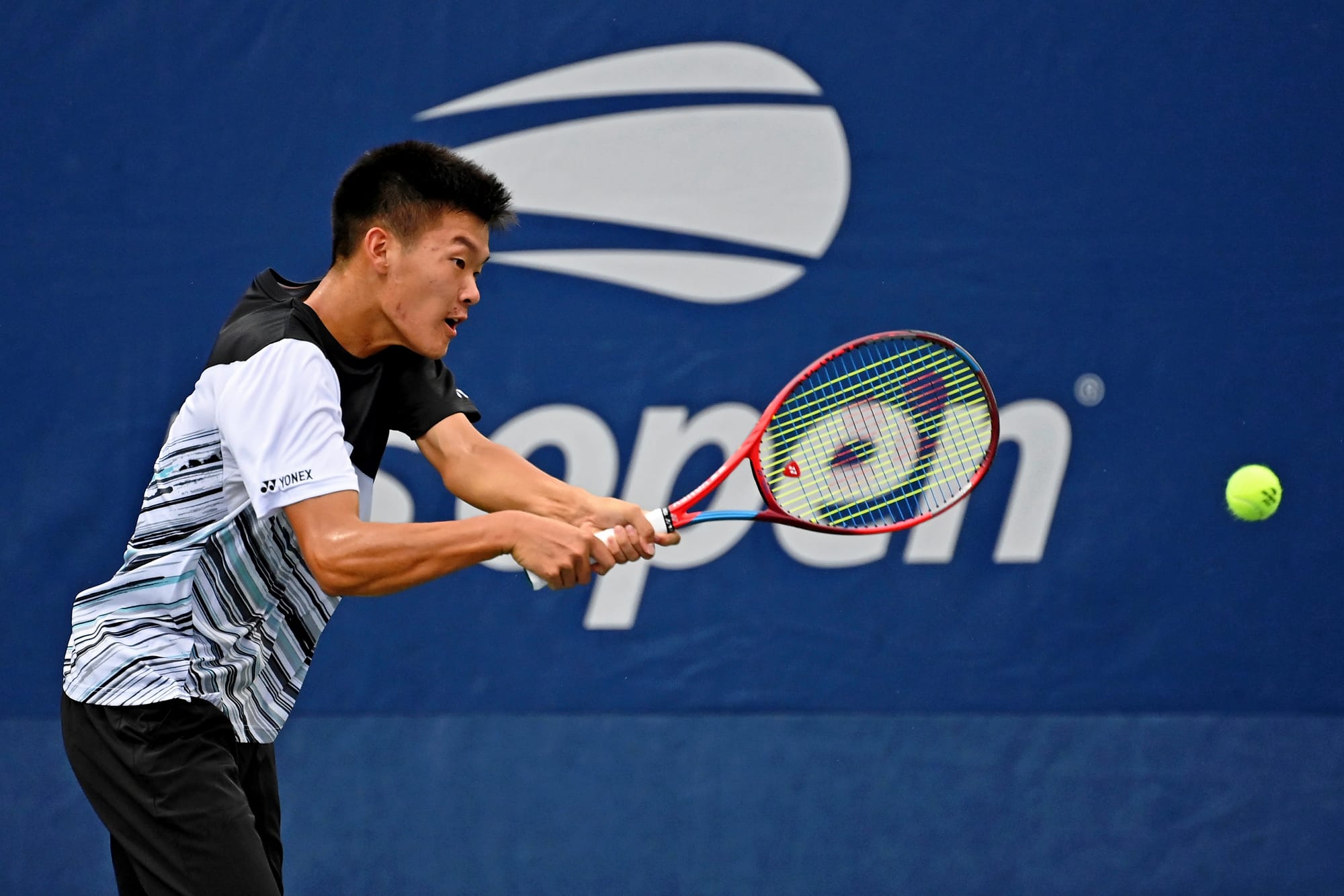
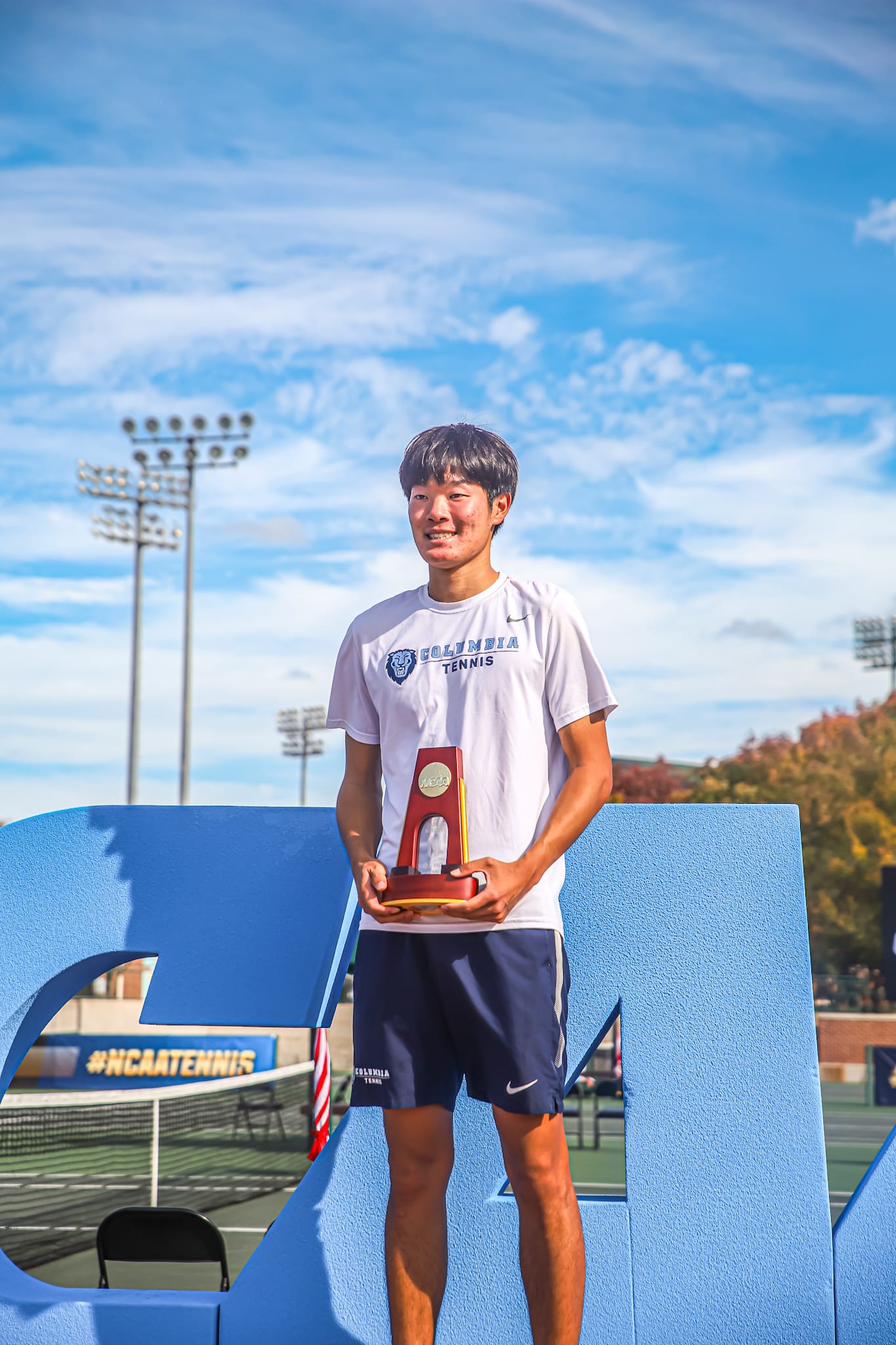
Now poised and able to handle and understand adversity, Zheng is a national champion with much more in his future. [AP photo, l, Courtesy photo, r]
They sorted it, Michael committed, and he’s climbed and climbed ever since. In high school, he made it to three junior Grand Slams, advancing to the 2022 Wimbledon boys singles final. His freshman year at Columbia he was the first player in Ivy League history to be named Rookie of the Year, Player of the Year and First Team All-Ivy in singles and doubles in the same season.
He’s earned All-American honors in all three years that he’s been at Columbia. And now, with the 2024 national singles title, he’s ranked No. 1 in the Intercollegiate Tennis Association singles rankings and No. 30 in doubles with teammate Hugo Hashimoto.
Yes, he’s still looking up. There’s still plenty of elevation to gain as he sets his sights on a repeat singles title, a deep run at team nationals this spring and, he hopes, a professional career. But now others are looking up at him, too.
